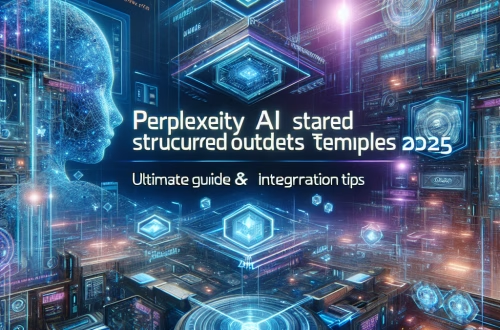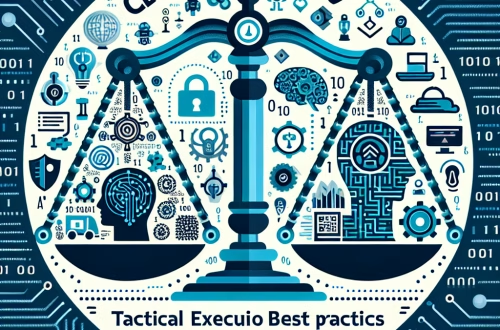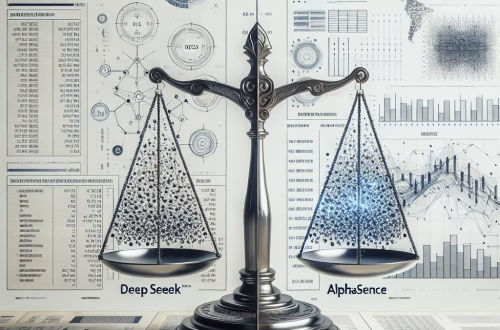Summary:
Perplexity AI vs. ChatGPT: This article compares Perplexity AI and ChatGPT in how they source and deliver information by 2025. Perplexity AI specializes in real-time web crawling, citation-backed responses, and up-to-date data retrieval, while ChatGPT leans on its massive pre-trained knowledge base with limited live updates. For novices entering the AI industry, understanding these differences matters because sourcing accuracy and freshness directly impact research quality, decision-making, and content reliability. By 2025, advancements in retrieval-augmented generation (RAG) and regulatory scrutiny will intensify this rivalry, making it crucial to choose the right tool for specific tasks.
What This Means for You:
- Reliability in Research: Perplexity AI delivers live-sourced citations, reducing outdated information risks for time-sensitive projects. Verify results using its built-in source links. ChatGPT remains useful for broad conceptual explanations but requires manual fact-checking post-2023.
- Workflow Optimization: Use Perplexity for competitive analysis or news-driven tasks requiring current data. For creative writing or brainstorming, ChatGPT’s generative strength saves time. Always cross-verify stats with primary sources regardless of the tool.
- Ethical Awareness: Both tools may inherit biases from their data pipelines. Review Perplexity’s cited sources for credibility and audit ChatGPT outputs for hidden assumptions. Updated 2025 ethics guidelines suggest anonymizing sensitive queries.
- Future Outlook or Warning: Expect stricter regulations around AI-sourced content by 2025, particularly in academia and healthcare. Relying solely on either tool for critical decisions risks legal or reputational fallout. Hybrid approaches combining AI with human oversight will become essential.
Perplexity AI vs. ChatGPT: Head-to-Head Rivalry
Information Freshness and Accuracy
By 2025, Perplexity AI will leverage real-time semantic search across journals, news sites, and databases, delivering answers annotated with live links. Its “Pro Search” mode filters low-quality sources, prioritizing .gov or peer-reviewed domains. However, excessive dependence on trending web data may surface unvetted theories during breaking events. ChatGPT’s knowledge remains static post-training (cutoff: late 2023), making it inconsistent for emerging topics like new regulations or viral technologies. Its strength lies in synthesizing well-established concepts—e.g., explaining quantum computing basics—but it hallucinates specifics post-cutoff.
Use Case Specialization
Perplexity excels in:
- Academic research (automated citation generation)
- Market trend analysis (real-time stock or consumer data)
- Technical troubleshooting (indexing Stack Overflow/GitHub threads)
ChatGPT dominates in:
- Content ideation (generating blog outlines or marketing angles)
- Language refinement (paraphrasing complex text for clarity)
- Role-play simulations (e.g., sales call practice)
Perplexity’s 2025 “Focus Modes” let users narrow sourcing to academic or industry-specific repositories, reducing noise. Meanwhile, ChatGPT integrates plugins for limited real-time data (e.g., Wolfram Alpha for math), but setup complexity frustrates novices.
Transparency and Bias
Perplexity’s citation trail allows users to assess source credibility—crucial for mitigating misinformation. Yet, its heavy reliance on SEO-optimized content may skew toward popular vs. accurate sources. ChatGPT lacks sourcing transparency, making bias detection harder. Its 2025 “Turbo” version allegedly reduces political bias, but internal audits remain proprietary.
Cost and Accessibility
Perplexity’s free tier limits daily searches; its $20/month “Pro” plan unlocks GPT-4 customization and academic databases. ChatGPT’s free version uses GPT-3.5, while GPT-4 costs $20/month. Budget-conscious novices may prefer Perplexity for research depth, while casual users benefit from ChatGPT’s generative flexibility.
Limitations to Consider
- Perplexity: Struggles with nuanced subjective queries (e.g., “best marketing strategy”) due to over-indexing measurable data.
- ChatGPT: Generates plausible but inaccurate responses post-2023, like fictional product features or obsolete regulations.
By 2025, expect both tools to incorporate multimodal sourcing (e.g., verifying data via images/videos), yet computational costs may delay free-tier access.
People Also Ask About:
- Which AI is better for academic research in 2025? Perplexity AI excels with automated citations and access to paywalled papers via partnerships with JSTOR and arXiv. However, ChatGPT’s “Advanced Data Analysis” plugin can summarize uploaded PDFs—ideal for annotating existing literature.
- How do they handle misinformation in dynamic events? During crises, Perplexity cross-references multiple live reports but may amplify conflicting initial claims. ChatGPT avoids real-time speculation but may default to outdated assumptions. Users should triangulate AI outputs with official channels.
- Will sourcing methods impact industry adoption? Yes. Healthcare and legal sectors favor Perplexity’s audit trails, while creative industries prefer ChatGPT’s ideation speed. Small businesses using Perplexity report 30% faster competitor analysis.
- Are there cost-free alternatives with similar sourcing? Microsoft Copilot (powered by GPT-4) offers free limited searches with citations. For coding, Anthropic’s Claude cites GitHub repositories but lags in non-tech domains.
Expert Opinion:
Experts caution that over-reliance on AI for sourcing breeds complacency in critical thinking. Perplexity’s citations require evaluating source authority—novices often overlook domain expertise or funding biases. Meanwhile, ChatGPT’s fluency obscures its knowledge gaps, risking “automation bias.” By 2025, integrating AI with curated enterprise databases will mitigate risks, but personal use demands habitual verification. Regulatory frameworks may enforce source disclosure, penalizing opaque models.
Extra Information:
- Perplexity Source Transparency Report – Details their 2025 web-indexing protocols and domain reliability scoring.
- ChatGPT’s Knowledge Updates Blog – Explains post-2023 data limitations and plugin integrations.
- Global AI Ethics Guidelines (2025 Draft) – Covers sourcing accountability standards impacting both tools.
Related Key Terms:
- Perplexity AI real-time web sourcing advantages 2025
- ChatGPT information cutoff limitations post-2023
- Best AI research assistant for academic citations
- Cost comparison Perplexity Pro vs ChatGPT Plus 2025
- Ethical AI sourcing regulations United States 2025
- Perplexity Focus Modes for industry-specific data
- RAG technology impact on generative AI accuracy
Check out our AI Model Comparison Tool here: AI Model Comparison Tool
#HeadtoHead #Rivalry
*Featured image provided by Pixabay





